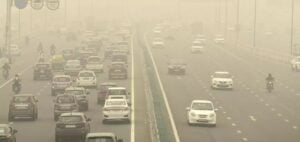Japan and South Korea have made token efforts to boost clean energy investment in Southeast and South Asia, but they are not leading the regional charge on climate change. Their lack of climate leadership stems in part from their reluctance to take concrete action against climate change in their own domestic markets.
Obstacles to climate policy in Japan
In Japan, according to think tank InfluenceMap, climate and energy policy has been held back by powerful business groups representing heavy industries such as the Japan Iron and Steel Federation (JISF), the Federation of Electric Power Companies (FEPC) and the Japan Automobile Manufacturers Association (JAMA). The powerful Japanese Business Federation, or “Keidanren”, also dominates the climate agenda, strongly opposing policies such as carbon taxation while supporting fossil thermal power.
Climate policy challenges in South Korea
Powerful family-owned conglomerates, known as “chaebols,” have dominated the South Korean economy, contributing to the country’s post-war industrial resurgence and exerting considerable influence on economic and political policy. These family-owned conglomerates also control much of South Korea’s energy-intensive industries, including refining, petrochemicals, manufacturing, shipbuilding and automotive manufacturing, most of which have resisted policies such as carbon taxes under various governments.
Economic justifications for climate inaction
Ironically, the UNCTAD report stated that the cost of climate inaction far outweighed the necessary investments. Japanese and South Korean industries have long argued that the high costs of decarbonization would hamper economic growth and make them uncompetitive, first when both economies were slowing down, then during the COVID-19 pandemic.
At COP27 in November 2022, Japan received the “Fossil of the Day” award from Climate Action Network International, a group of non-governmental organizations that gave the prize to countries “best at being the worst and doing the least” when it comes to climate change.
Despite their potential and influence in Asia, Japan and South Korea seem to be lagging behind in the fight against climate change. Their reluctance to take decisive action against climate change at home and abroad could hamper climate action in the region.





















